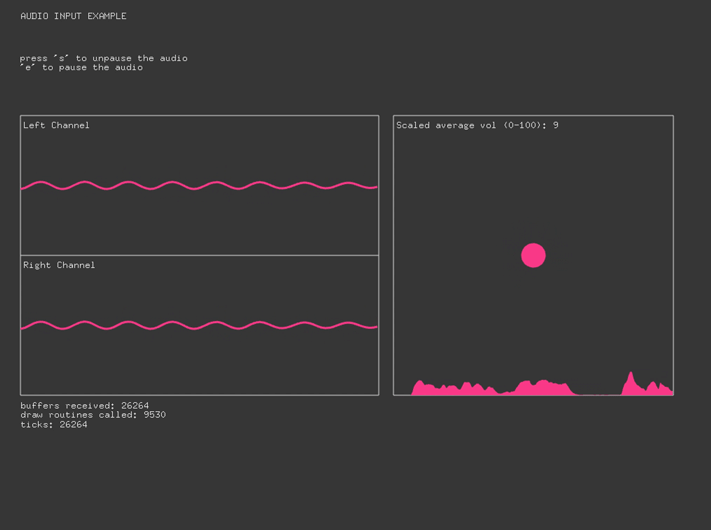No description
| bin | ||
| obj/linux64/Release | ||
| src | ||
| addons.make | ||
| audioInputExample.gif | ||
| audioInputExample.qbs | ||
| audioInputExample.qbs.user | ||
| config.make | ||
| Makefile | ||
| readme.md | ||
#audioInputExample
Learning Objectives
This openFrameworks example is designed to demonstrate how to access, extract, and draw from your audio input's raw data.
Studying the code behind this example will help you understand:
- How to list all available audio devices with
soundStream.printDeviceList()and set a specific audio input device for OF app withsettings.setInDevice(devices[0]) - How audio functions work independent from draw and update loop by observe
bufferCounteranddrawCounter - How to roughly calculate volume by using RMS (root mean square) value in
void audioIn - How to record data overtime with vector with
vector <float> volHistory
Expected Behavior
When launching this app, you should see
- Fast moving curve lines on the left, and big circle on the right that reacts to live audio input
- Graph of recorded volume data overtime under the big circle
- Text that shows difference in draw vs buffer counter
Instructions for use:
- make some noise or touch your microphone to see how sound manipulate the drawing.
- press
eto stop live audio input,sto continue
Classes used in this example
This example uses the following classes:
ofSoundStreamofSoundStreamSettings
